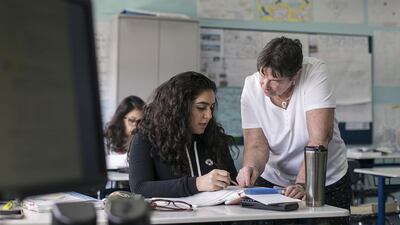The establishment of the Teacher and Educational Leadership Standards can be an important measure in strengthening the education system. It will align qualification requirements, and should ultimately raise the quality of teaching. Anyone wishing to work in our schools – whether as teachers or principals – will need to prove the adequacy of their professional knowledge. Fair enough. It is, after all, the least we should expect of our children’s teachers.
Of course, the project is still in its early stages, and a few hiccups can be expected. Last year, a pilot programme was launched in Abu Dhabi and Dubai before the first phase of the programme’s introduction across the country in the next academic year. More than 200 teachers were selected in Dubai and 400 in Abu Dhabi. These teachers went through the full process, from writing a lengthy self-assessment to completing a training programme and then, finally, taking the all-important exam.
In Dubai, more than half the 223 applicants failed. Among those who didn’t make the grade, 67 will need to complete English-language training. Fifty will have to resit the course.
It isn’t entirely clear how the disappointing results came about. But as we said, hiccups can be expected. For now, maybe it might be useful to match the results with the KHDA’s schools evaluation system. A more comprehensive understanding of the health of our education system might be had if we were to find that teachers who do well in the new standards programme also come from schools that perform admirably in the inspection regime. That is to say, good teachers equal good schools. Conversely, if teachers who didn’t fare well in the exam should come from schools struggling in the lower reaches of the league table, that would confirm the obverse. If such a correlation can be determined, it would show schools – and parents – where the dots need joining. Of course, should there not be a match between exam results and school standing, a wider rethink will be needed.
With feedback from teachers and school leaders, authorities now can begin to evaluate the nascent licensing process and, if necessary, fine tune it. Teaching licences, insofar as they standardise acceptable minimum standards of professionalism expected of our teachers, are a way of ensuring uniform quality across the school system. Let’s make sure it works.

